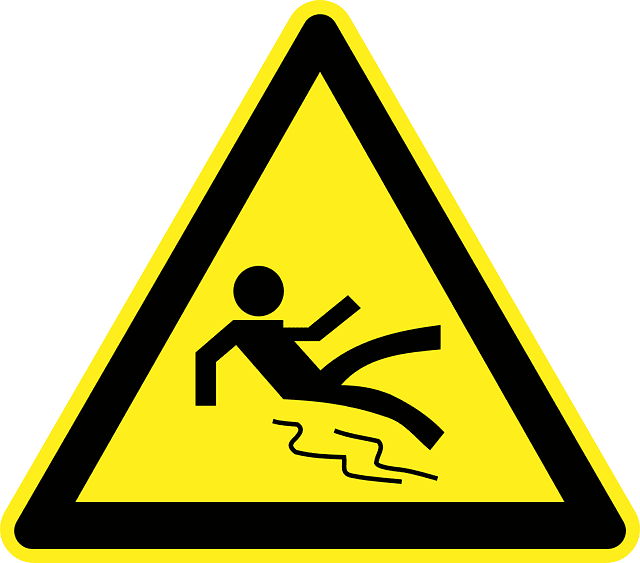You have the right to pursue compensation for an accident at work. Whether you’re hurt or have an industrial illness, your priority should be medical care. Having records of your accident is helpful if you need to claim benefits. After you’ve received medical attention, tell your supervisor about what happened. You can ask someone else to report the accident if you’re not up for it. By reporting the accident, you protect yourself against the employer, who might claim you were injured outside of working hours. If possible, have a witness. If you were hurt through another’s fault, you’re entitled to compensation for your pain and suffering.
You might be wondering what’s available to you in terms of monetary losses and overall damages. Workers’ compensation isn’t the only option you have. In some cases, it’s possible to file a personal injury claim for an accident at work, which provides better compensation. Find a solicitor to support you in your time of need. They’ll understand the magnitude of the situation and suggest the best course of action. As an employee, you can recover for the lost wages and costs of medical care. There are striking differences between a workers’ compensation claim and a personal injury claim. If you’d like to find out more, please continue reading.
Fault Requirement
If you’re injured at work or while performing work-related tasks, you don’t need to prove fault to recover workers’ compensation benefits. Simply put, you don’t need to demonstrate that your employer or co-worker did anything wrong. Even if you were negligent, and this oversight caused your injury, you’re still entitled to receive workers’ compensation benefits. Failure to report a work-related injury within three days may result in a denial of the claim. Additionally, corrective action might be taken. If you were under the influence of drugs or alcohol when it all happened, the insurance carrier would most likely deny compensation benefits.
With this said, all employers are responsible for workers’ health and safety. Claiming compensation for a work accident or injury in the UK is less complicated than we thought. To bring a valid personal injury claim, you must prove another party was at fault for the accident. If you slipped and fell, you have to prove that the property owner failed to keep the premises reasonably safe. Anyone who is injured due to the negligence of someone else is eligible to file a personal injury lawsuit, not just workers. Proving negligence requires you to show that the at-fault parted had a duty of care, and they breached that duty. In other words, you need to show they did something wrong.
Compensation Available
In a workers’ compensation case, you aren’t entitled to benefits for pain and suffering. You’ll not receive compensation for non-economic damages regardless of your injury or illness. You’ll receive weekly payments in addition to your wage loss benefits, medical bills, and vocational rehabilitation. Compensation for pain and suffering may be recoverable in a personal injury claim. As a rule, employees aren’t allowed to sue their employers for workplace accidents, but there are some exceptions to the rule. Pain and suffering describe the physical pain and emotional distress a person endures as a result of the accident. You can recover damages for:
- Immobility or loss of function
- Depression
- Sleep disturbances
- Loss of enjoyment of life
You’ll typically receive workers’ compensation benefits within a matter of days. Nonetheless, to finalize a personal injury claim might take months, years even. You have to stay afloat financially until the lawsuit is over. Navigating the legal process requires an experienced solicitor. The insurance company will resort to all kinds of strategies to make sure it pays the least amount possible.
The Legal Process
When you apply for workers’ compensation benefits, you have to notify the employer of your injury and fill out the necessary paperwork. The insurance company will conduct an investigation into the injury claim and will most likely require you to be examined by a doctor. UK compensation laws are designed to protect employees. Your employer may have a scheme for paying you more for time off caused by the accident. Equally, they might decide to pay extra depending on what happened. It’s a good idea to take photos of your injury, get the contact details of witnesses, and make notes about the accident.
If you’re able to file a personal injury lawsuit, your claim will be decided in civil court. Keep in mind that it’s rare that a personal injury claim goes to court. Almost all of them are settled via negotiation. Taking matters to court can be complicated and take a long time. The case can settle at any point. In awarding full compensation, the tort system pays damages in the form of a lump sum of money. There are cases when you can seek damages for pain and suffering, such as if you were injured by a defective product or if gross negligence occurred.
Not Only Can You Claim Workers’ Compensation Benefits, But Also Damages from The Employer
Surprising as it may seem, you can combine the separate actions. If the negligence was brought about by a third party, you can file a personal injury lawsuit against that party. This represents a third-party claim, and it’s separate from your workers’ compensation claim. Let’s take an example. If you were driving the company car or were carrying out work-related tasks at the time of the accident, you’re able to sue the at-fault driver. Here’s another example. If you’re a door-to-door salesperson and you were bitten by a dog, you can make a claim against the owner of the property.
You have to prove that the accident was a necessary condition that caused the injury. It should be the sole or predominant cause of the event. The relationship between the incident and work is obvious. Needless to say, it can be challenging to determine when work begins and ends. Your solicitor will work with you to gather evidence and prove these things.














Leave a Reply